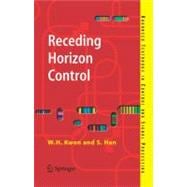
| 1 Introduction | 1 | (16) | |||
|
1 | (2) | |||
|
3 | (4) | |||
|
7 | (1) | |||
|
8 | (1) | |||
|
9 | (2) | |||
|
11 | (4) | |||
|
15 | (2) | |||
| 2 Optimal Controls on Finite and Infinite Horizons: A Review | 17 | (66) | |||
|
17 | (1) | |||
|
18 | (8) | |||
|
18 | (6) | |||
|
24 | (2) | |||
|
26 | (23) | |||
|
26 | (16) | |||
|
42 | (7) | |||
|
49 | (8) | |||
|
49 | (3) | |||
|
52 | (4) | |||
|
56 | (1) | |||
|
57 | (9) | |||
|
58 | (3) | |||
|
61 | (5) | |||
|
66 | (4) | |||
|
66 | (2) | |||
|
68 | (2) | |||
|
70 | (4) | |||
|
74 | (2) | |||
|
76 | (7) | |||
| 3 State Feedback Receding Horizon Controls | 83 | (76) | |||
|
83 | (1) | |||
|
84 | (3) | |||
|
84 | (1) | |||
|
85 | (2) | |||
|
87 | (38) | |||
|
87 | (4) | |||
|
91 | (4) | |||
|
95 | (9) | |||
|
104 | (11) | |||
|
115 | (7) | |||
|
122 | (3) | |||
|
125 | (14) | |||
|
125 | (3) | |||
|
128 | (5) | |||
|
133 | (5) | |||
|
138 | (1) | |||
|
139 | (11) | |||
|
139 | (4) | |||
|
143 | (5) | |||
|
148 | (2) | |||
|
150 | (1) | |||
|
151 | (8) | |||
| 4 Receding Horizon Filters | 159 | (58) | |||
|
159 | (2) | |||
|
161 | (4) | |||
|
165 | (25) | |||
|
165 | (2) | |||
|
167 | (10) | |||
|
177 | (11) | |||
|
188 | (2) | |||
|
190 | (5) | |||
|
195 | (12) | |||
|
195 | (2) | |||
|
197 | (5) | |||
|
202 | (2) | |||
|
204 | (3) | |||
|
207 | (2) | |||
|
209 | (8) | |||
| 5 Output Feedback Receding Horizon Controls | 217 | (44) | |||
|
217 | (1) | |||
|
218 | (2) | |||
|
220 | (2) | |||
|
222 | (5) | |||
|
227 | (17) | |||
|
227 | (3) | |||
|
230 | (5) | |||
|
235 | (4) | |||
|
239 | (5) | |||
|
244 | (12) | |||
|
244 | (1) | |||
|
245 | (5) | |||
|
250 | (4) | |||
|
254 | (2) | |||
|
256 | (1) | |||
|
256 | (5) | |||
| 6 Constrained Receding Horizon Controls | 261 | (36) | |||
|
261 | (1) | |||
|
262 | (7) | |||
|
269 | (3) | |||
|
272 | (5) | |||
|
277 | (7) | |||
|
284 | (2) | |||
|
286 | (3) | |||
|
289 | (1) | |||
|
290 | (7) | |||
| 7 Nonlinear Receding Horizon Controls | 297 | (26) | |||
|
297 | (1) | |||
|
298 | (2) | |||
|
300 | (4) | |||
|
304 | (7) | |||
|
311 | (2) | |||
|
313 | (3) | |||
|
316 | (1) | |||
|
316 | (7) | |||
| A Matrix Equality and Matrix Calculus | 323 | (4) | |||
|
323 | (2) | |||
|
325 | (2) | |||
| B System Theory | 327 | (8) | |||
|
327 | (3) | |||
|
330 | (1) | |||
|
331 | (4) | |||
| C Random Variables | 335 | (6) | |||
|
335 | (1) | |||
|
336 | (3) | |||
|
339 | (2) | |||
| D Linear Matrix Inequalities and Semidefinite Programming | 341 | (6) | |||
|
341 | (2) | |||
|
343 | (4) | |||
| E Survey on Applications | 347 | (2) | |||
| F MATLAB® Programs | 349 | (18) | |||
| References | 367 | (8) | |||
| Index | 375 |
The New copy of this book will include any supplemental materials advertised. Please check the title of the book to determine if it should include any access cards, study guides, lab manuals, CDs, etc.
The Used, Rental and eBook copies of this book are not guaranteed to include any supplemental materials. Typically, only the book itself is included. This is true even if the title states it includes any access cards, study guides, lab manuals, CDs, etc.